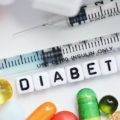by Jumoke Fakomi
“Whenever my period cramps starts I am always rushed to the clinic,” says Timilehin Adebiyi, an Undergraduate of the Lagos State Unversity. For Adeola Adesewa, the pain is always so unbearable that she rolls on the floor crying helplessly. This is unfortunately the stories of many young girls in the world.
Menstrual period is normal vaginal bleeding that happens as part of a woman’s monthly cycle. Many women have painful periods also known medically as Dysmenorrhea. The pain is most often menstrual cramps, which are a throbbing, cramping pain in your lower abdomen. You may also have other symptoms, such as lower back pain, nausea, diarrhea, and headaches
To trigger your imagination a bit, Period pain has been likened to having a heart attack. Period cramps can feel like an ache, they can be sharp and stabbing or a consistent, dull pain. You’ll feel them lower in the abdomen than your stomach and the pain can reach your upper legs and lower back. Your stomach may be upset, but period cramps will be lower in your abdomen than a stomach ache.
Period pain is prevalent in Nigeria and it makes many women ashamed. Career women like Adetoun who shared her story with us said that her boss is a male and does not understand that her pain affects her productivity in the office and makes her very weak. He insists that she works even in pain and if she refuses to work, her salary will be deducted.

According to research menstrual pain was reported by 84.1% of women, with 43.1% reporting that pain occurred during every period, and 41% reporting that pain occurred during some periods. Studies found out that In Nigeria, out of every 10 girls about 8 of them experience intense cramps during their period.
In 10 out of 100 women the pain is so bad that they’re unable to carry out their usual daily activities on one to three days every month; the pain is usually worse in women under the age of 20. It usually gets better or even goes away completely within a few years of their first period. In many women period pain becomes milder after the birth of their first child.
To reduce the pain, Dr. Tunji Lamina recommends over the counters pain relievers such as non-steroidal anti-inflammatory drugs (NSAIDs). NSAIDs include ibuprofen and naproxen. Besides relieving pain, NSAIDs reduce the amount of prostaglandins that your uterus makes and lessen their effects. This helps to lessen the cramps.
Dr. Lamina also advised using a heating pad or hot water bottle on your lower abdomen. Here, the muscles of the lower body relax and the uterus tends to distend and minimize the pain the painful period causes to that region of the body.
Regular exercises can help reduce the pains experienced during period as it relaxes the mind and calms the body. Girls are also advised to take hot baths to provide some homeostatic balance.
In conclusion, period pains can be mild or acute requiring medications to relieve the pains. Either way, it is pertinent to understand that one can still smile and carry out some necessities if one knows how to deal with it.








